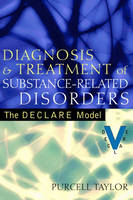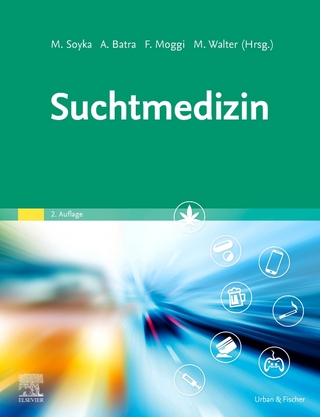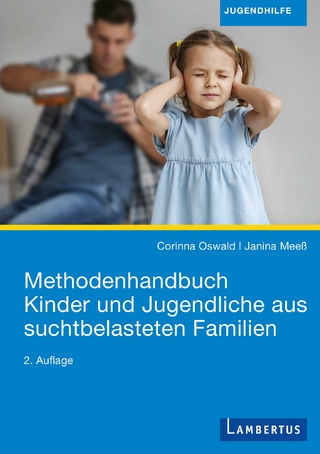
Diagnosis and Treatment of Substance-Related Disorders
Pearson (Verlag)
978-0-205-40440-7 (ISBN)
- Titel ist leider vergriffen;
keine Neuauflage - Artikel merken
This eloquently simple text provides a “cutting edge” philosophy for those dealing with the assessment, diagnosis, treatment and aftercare of individuals suffering from issues with chemical dependency. Diagnosis and Treatment of Substance Abuse follows the D.E.C.L.A.R.E model of treatment—a model in which each letter represents one of the seven bio-psychosocial modalities, or points of entry, for viewing the problems of a dependent client. This model takes the student through every phase of the acronym, which employs a therapeutic approach aimed at facilitating the improvement of drug-abusing behavior.
Throughout the text, the student is provided with helpful suggestions regarding treatment impasses, assessing strengths and weaknesses, developing a treatment plan and prioritizing intervention strategies. Transcripts from actual sessions and case vignettes provide rich clinical material to the text. Also, the student/clinician is provided with actual clinical instruments, not seen in other books, to conduct assessment evaluations of clients.
CONVENIENT SUPPLEMENT FOR CLINICAL PRACTICE OR INTERNSHIP USE WITH CLIENTS AVAILABLE! 3-hole punched clinical Assessment Instruments booklets are available separately (in bundles of 10) to conduct assessment evaluations of clients.
TMEach chapter concludes with “Recapping...”
Introduction: DECLARE Therapy.
An Unique Therapeutic Approach.
Treatment Failures.
Eliminating NBO–Negative Behavioral Orientation.
The Procedure.
About this Book.
1. An Overview.
High-Tech, Low Touch.
The DECLARETM Model.
Micropsychological: Biopyschological view–Neuronal.
Biopsychological View–Structural.
Macropsychosocial View.
Negative Declatypes.
DECLATYPICAL Syndromes.
Denial Declatypical Syndrome.
Esteem Declatypical Syndrome.
Confusion Declatypical Syndrome.
Loss of Significant Resources Declatypical Syndrome.
Acquired Declatypes.
Acquired Declatype: Family History.
Entopsychic Processes.
The Case of W.F.
Developing Self-Control.
Eliminating the NBO.
The BOC Model.
Ento: Journey Into Wholeness.
Metapsychological: The Churchill Syndrome.
2. Basic Methods.
Modality Profile.
DECLARETM Therapy and the Personal Socialization Process.
The Multifaceted Approach.
Personal Surgery Technique.
Stress Reduction.
DAPIR Anxiety Scale Method.
The Empty Chair Technique.
Self-Hypnosis.
Guided Imagery.
Life Boat Fantasy Technique.
Self-Monitoring.
Taylor Historical Questionnaire (THQ).
The MAC-D.
Thought-Stopping.
Goal Rehearsal.
Diversion.
Time Projection.
Drug and Alcohol Education.
Self-Esteem Exercise.
Write Your Drug Story.
The Do I Hate You? Technique.
3. The Initial Interview.
Denial.
Esteem.
Confusion.
Loss of Significant Resources.
Acceptance.
Resolution.
Entry.
Relax Yourself and Your Client.
Auditory Signals.
Visual Signals.
Abstract Signals.
Kinesthetic Signals.
Compassion.
Assessing the Level of Suffering.
Empathy.
Determining Degree of Insight.
Partial Insight.
No Insight.
Development of Denial.
Managing Denial.
Declaring Denial.
DECLARE Questions for Managing Health.
Destructive/Dangerous Behavior.
Eye Opener.
Controlling Use of Alcohol and/or Drugs.
Loss of Resources.
Anger or Annoyance.
Remorse.
Esteem.
Confronting the Client.
Inpatient or Outpatient Services?
Assessment.
4. Diagnosis/Treatment.
How to Develop a Modality Profile.
Assessment Procedure.
Initial Interview.
Goals and Objectives.
Developing the Modality Profile.
The Case of M.K.
Initial Modality Profile–M.K.
The Case of W.R.
W.R.'s Modality Profile.
W.R.'s Treatment Plan.
Diagnosis: using the DSM-IV.
Treatment.
Therapist Ratings.
Ongoing Assessment.
DECLARE Prognosis Criteria.
Client's Rating.
Using the MAC-D-R.
MAC-D-R Suggested Form.
Pre-and Post-Treatment.
Acceptance and Resolution Declatypes.
Treatment.
Stages and Warnings of Relapses.
5. Challenges/Choices.
Managing Recovery Challenges.
Establishing a Challenge Checklist.
Choose What Works.
Losing the Fear of Recovery.
Actions to Take.
Recording Results.
Evaluating Results.
Motivation.
Recall the Reason Why.
Denial Revisited.
Reassessing.
Client Recovery Expectations.
Developing Incentives.
Feelings.
Inpatient Counseling.
Managing Stress.
Journal Keeping.
Imagery and Self-Hypnosis.
Guided Imagery.
Diversion Techniques.
Need for Support.
Family and Friends.
Effectiveness of Support.
Support Meetings.
Managing Others Who are Unsupportive.
Craving.
Craving Intervention Plan.
Relapses and Slips.
Managing Change.
Epilogue: The Journey...
| Erscheint lt. Verlag | 15.10.2004 |
|---|---|
| Sprache | englisch |
| Maße | 152 x 229 mm |
| Gewicht | 202 g |
| Themenwelt | Medizin / Pharmazie ► Medizinische Fachgebiete ► Suchtkrankheiten |
| ISBN-10 | 0-205-40440-5 / 0205404405 |
| ISBN-13 | 978-0-205-40440-7 / 9780205404407 |
| Zustand | Neuware |
| Haben Sie eine Frage zum Produkt? |
aus dem Bereich


